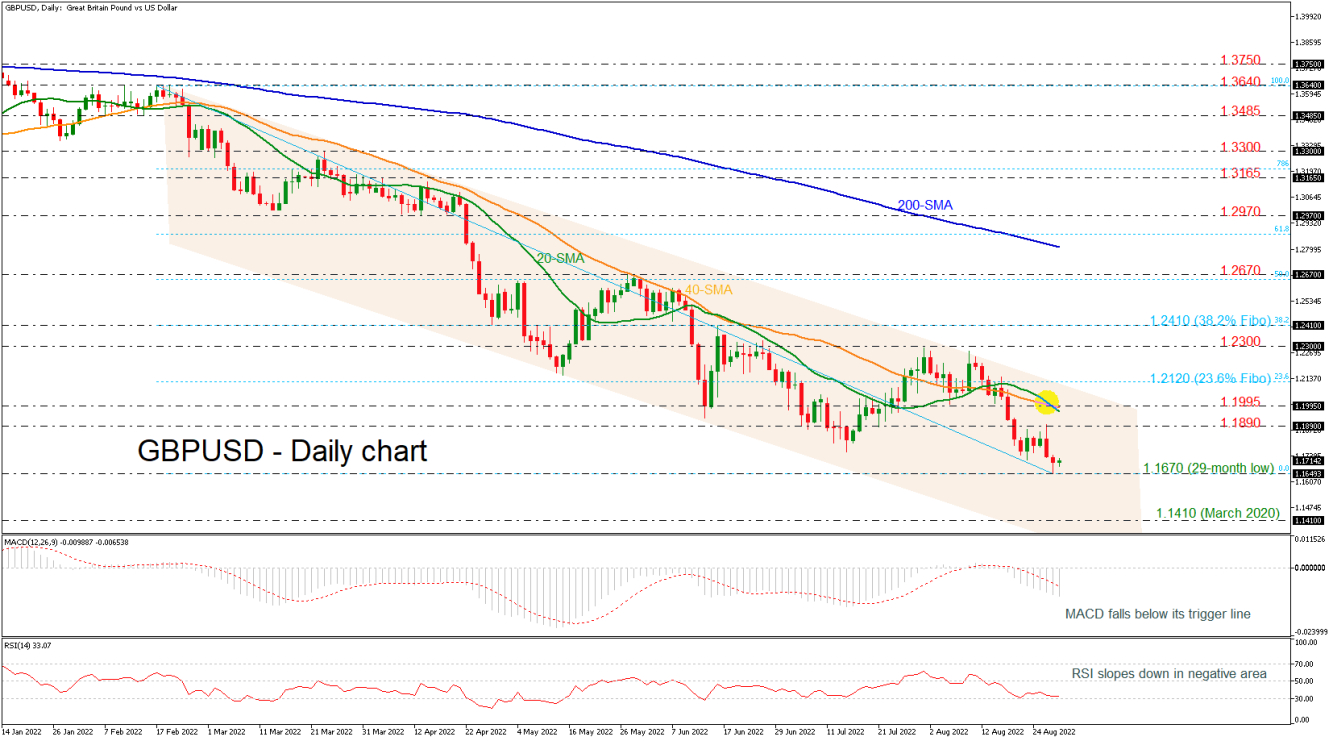When looking at the bigger picture, the pair has been developing within a descending channel since February with the technical indicators confirming the bearish structure.
The MACD oscillator is heading south below its trigger and zero lines, while the RSI is holding near the oversold territory. In trend indicators, the 20- and 40-day simple moving averages (SMAs) posted a bearish crossover and are following the current market price action.
If the 1.1670 support fails, then the focus would be to the downside again towards the 1.1410 mark, registered in March 2020. Additional declines from here may next pause near the 1.1300 psychological mark.
In the event of an upside reversal, the 1.1890-1.1995 resistance area, which encapsulates the short-term SMAs, could be a crucial region to have in mind. A break above it would take the market until the 23.6% Fibonacci retracement level of the downward wave from 1.3640 to 1.1670 at 1.2120, which stands near the descending trend line. More advances may switch the near-term picture to slightly positive, meeting the 1.2300 handle and the 38.2% Fibonacci of 1.2410.
Turning to the long-term picture, the market seems to be in a bearish mode given that the pair is trading below the 200-day SMA and within a downward sloping channel.


